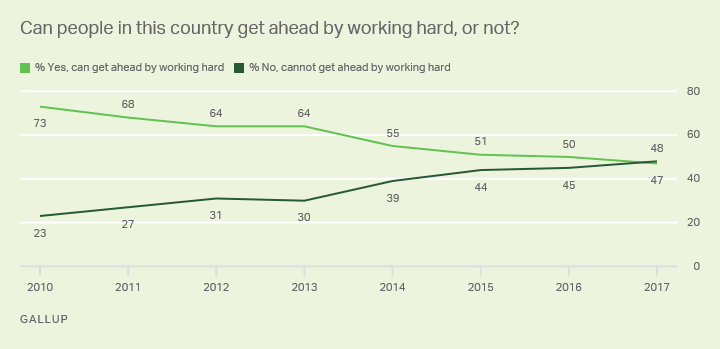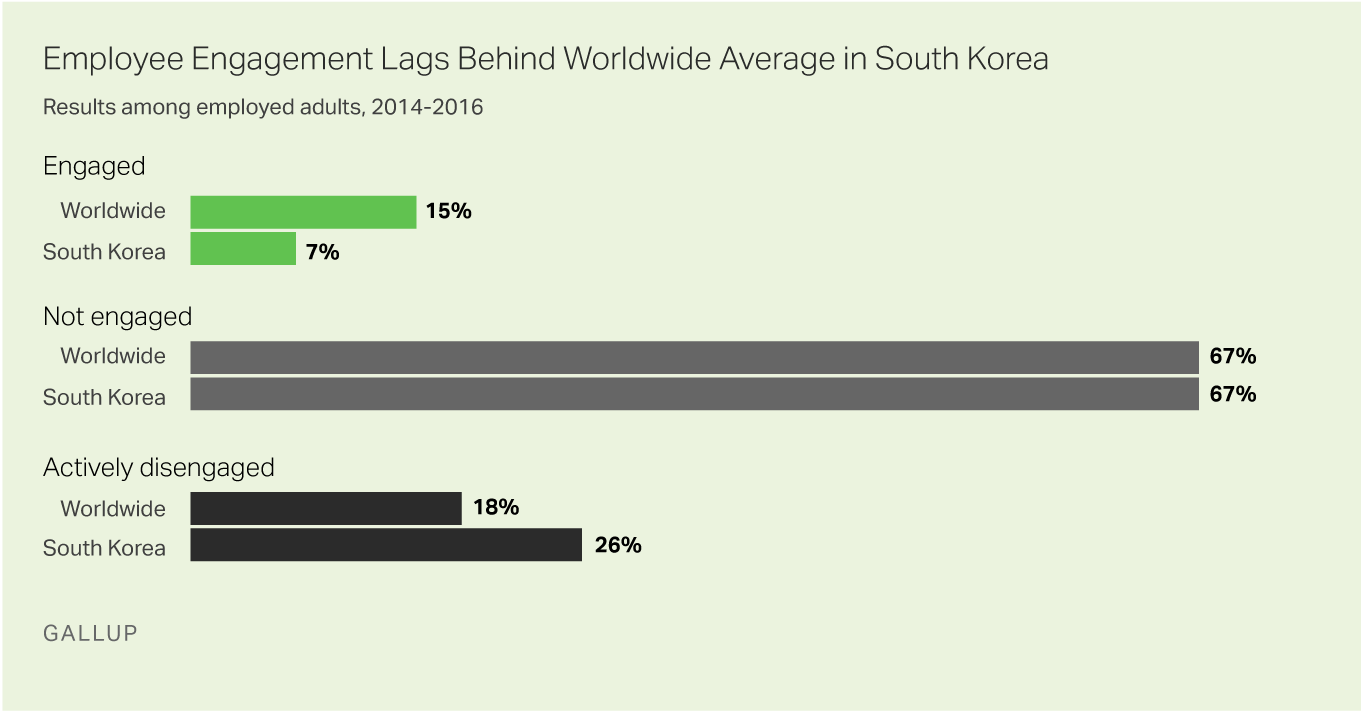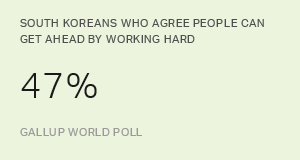South Koreans' failing belief in the value of hard work in recent years could hurt efforts to motivate workers in a country currently struggling with low employee engagement and productivity. Since peaking at 73% in 2010, the percentage of South Koreans who feel people in their country can get ahead by working hard has drifted steadily downward. Less than half (47%) now feel this way. Further, South Koreans are now just as likely to disagree with this statement as they are to agree with it.

According to data from the Organisation for Economic Co-operation and Development (OECD), South Korea's gross domestic product per hour worked was $31 in 2015 -- about half that of the OECD's more productive members, including the U.S. Employees in South Korea tend to put in longer hours than those in most other OECD member countries but generate less value.
A shortage of good job opportunities for young people may play a role in many South Koreans' current lack of optimism about work. Residents aged 15 to 29 are particularly likely to have lost the conviction that it is possible to get ahead by working hard -- just 36% felt this way in 2017, versus 51% of South Koreans aged 30 and older. Youth unemployment reached a record-high annual rate of 9.9% in 2017, as one in five South Korean adults younger than 30 (21%) said it was a good time to find a job in their area.
Economists have pointed to rigidities in South Korea's labor market as a drag on job creation in the country. The traditional system emphasizes stable (often lifelong) employment and remuneration based on seniority -- attributes that helped large conglomerates maintain high levels of employee loyalty as they led the country's rapid industrialization beginning in the 1960s. However, these characteristics are increasingly seen as a hindrance amid social and technological changes that require a greater focus on flexibility and continual development.
Despite Willingness to Put in Long Hours, South Koreans Are Not Engaged at Work
Rigidity within the country's organizations may also be dampening employees' motivation and productivity. As discussed in Gallup's recent State of the Global Workplace report, the country's workforce -- like others in East Asia -- is characterized by a low level of employee engagement. The report presents findings from a set of workplace engagement questions asked of employed adults in 155 countries. Results from South Korea indicate that just 7% of employees are engaged -- that is, highly involved in and enthusiastic about their jobs. Further, a relatively high 26% of South Korean employees are actively disengaged -- in other words, they are openly resentful that their workplace needs aren't being met.

South Korean employees' engagement level is strongly related to their view of the value of hard work. Sixty percent of those who are engaged in their jobs say it is possible to get ahead in the country by working hard -- but this falls to 45% among those who are not engaged and to 30% among those who are actively disengaged.


